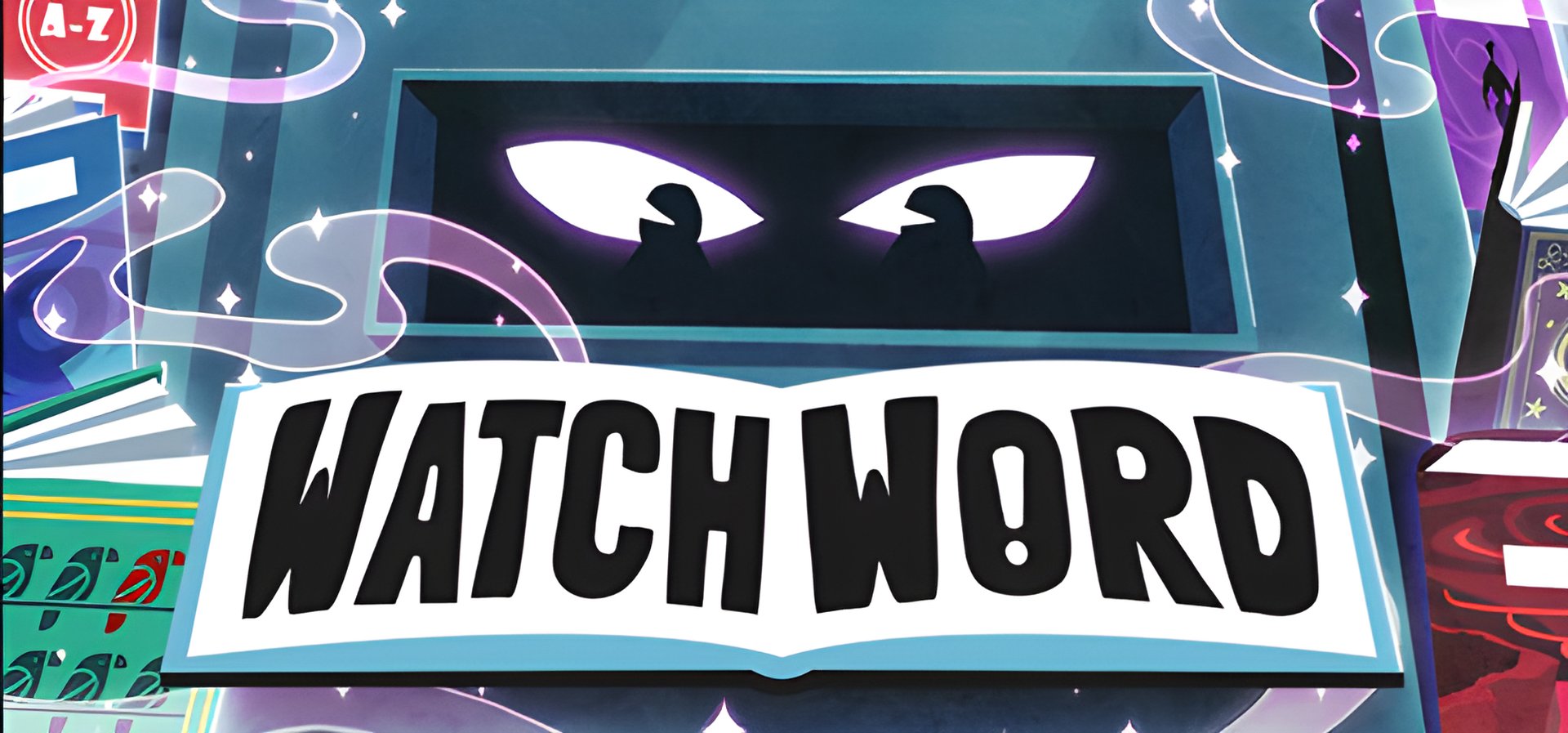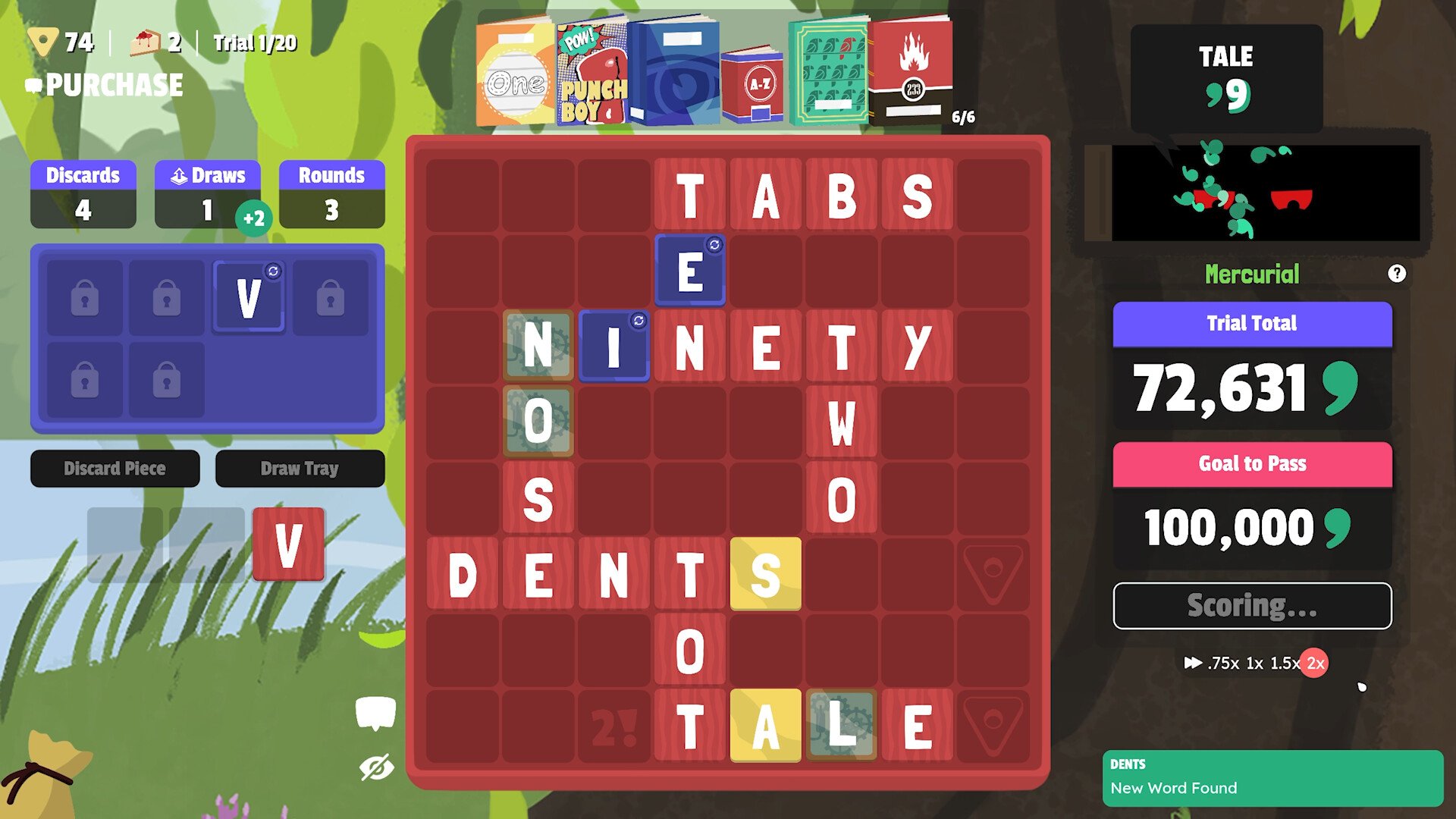The world of roguelike deck builders just got a new contender with Watchword. Released in September 2025, this game puts a unique twist on the genre by challenging players to strategically spell words to overcome trials. But is this anagram-based adventure truly worth your time? Our review dives into the gameplay, features, and overall value to help you decide if Watchword should be your next gaming obsession. Find out the true watchword meaning of fun in this review.

Gameplay and Core Mechanics of Watchword
Watchword combines the addictive nature of word games with the strategic depth of roguelike deck builders. Players are tasked with spelling words using a set of letter tiles, strategically placing them on a board to maximize their score. What sets Watchword apart is its integration of magical books that bend the rules of the game. These books can introduce new mechanics, enhance existing ones, or even hinder your progress, adding a layer of unpredictability to each run. The game is designed to be endlessly replayable, with no two runs ever being the same. Each trial presents new challenges, and players can unlock more difficult trials and hidden unlockables as they progress. After each trial, you'll visit the Forum, where you can upgrade your run, buy new items, and prepare for your next challenge. A good vocabulary helps, but strategy is key!
The core gameplay loop revolves around building and customizing your bag of letter tiles, experimenting with different book relics, and discovering powerful combinations. The game features hundreds of piece variations, including single letter, double letter, metal, glitched, and gold tiles. As you progress, you'll encounter Watchguards, each with a unique strategy, making their levels uniquely difficult. One of the most intriguing aspects of Watchword is the ability to make up words, thanks to forbidden books that blow the dictionary wide open. This opens up a world of possibilities for creative wordplay and strategic scoring. The game also features an endless mode, where players can push their skills to the limit and see how high they can score.
Whether you're a fan of word games, roguelike deck builders, or both, Watchword offers a unique and engaging experience. Its blend of strategic gameplay, unpredictable elements, and endless replayability makes it a game that's easy to pick up but difficult to put down. The game has clearly targeted an audience of strategy and puzzle game lovers, who are looking for something fresh and innovative.
Performance, Value, and the Watchword Definition
System Requirements and Performance
Watchword has modest system requirements, making it accessible to a wide range of players. The minimum requirements include a 64-bit processor, Windows 7, an x86_32 CPU with SSE2 instructions, 2 GB of RAM, and integrated graphics with full OpenGL 3.3 support. The recommended specs aren't much higher, suggesting the game is well-optimized. During gameplay, performance is generally smooth, with no noticeable lag or stuttering. The game runs well on both Windows and macOS. Even on older systems, Watchword maintains a steady frame rate, making it a good choice for gamers with less powerful hardware.
Pricing and Value Analysis
Watchword is priced at $11.89, which is a competitive price point for an indie game of this caliber. The game offers a substantial amount of content for the price, with over 80 unique book relics, hundreds of piece variations, and an endless mode. The high replayability factor further enhances its value, as players can spend countless hours experimenting with different builds and strategies. Compared to other roguelike deck builders, Watchword stands out with its unique wordplay mechanics and its focus on creating satisfying combos. The game's challenging difficulty and progression system provide a sense of accomplishment, while its unpredictable elements keep each run fresh and exciting.
Comparison with Other Word Games
While there are many word games on the market, Watchword differentiates itself with its roguelike elements and its emphasis on strategic deck building. Games like Scrabble and Boggle focus on vocabulary and quick thinking, whereas Watchword requires players to think strategically about their letter tiles and book relics. The ability to make up words also sets Watchword apart from traditional word games, allowing for more creative and strategic plays. The game's endless mode and high score system provide additional incentives for players to keep playing, while its planned updates promise even more content in the future.
But what is the watchword definition in the context of the game? It's about adapting and strategizing to overcome challenges with the tools at your disposal, embracing both real and made-up words to achieve victory.

Community, Updates, and Longevity
Community Engagement and Future Updates
Big Quail Games, the developers of Watchword, have been actively engaging with the community, soliciting feedback and providing updates on planned features. The game's Steam page features a dedicated forum where players can discuss strategies, report bugs, and suggest new content. The developers have also announced plans for custom dictionaries, localization options, more books, and more achievements. These planned updates demonstrate a commitment to supporting the game and keeping the community engaged. The game's community is active and enthusiastic, with players sharing their high scores, unique builds, and creative wordplays on social media.
Longevity and Replayability
Watchword's endless mode and high score system provide a long-term challenge for dedicated players. The game's unpredictable elements and diverse range of book relics ensure that each run feels fresh and unique. The planned updates and community-driven content will further extend the game's longevity, making it a worthwhile investment for fans of roguelike deck builders. The game also has hidden unlockables and difficult trials to keep players engaged for hours. With its challenging difficulty, strategic gameplay, and endless replayability, Watchword is a game that can be enjoyed for months or even years to come.
Potential for Modding and Custom Content
While Watchword does not currently support modding, the game's mechanics and content are well-suited for user-generated content. The ability to create custom dictionaries, book relics, and letter tiles would greatly enhance the game's replayability and community engagement. The developers have expressed interest in adding modding support in the future, which would open up a world of possibilities for creative players. The game has an engaging blend of strategy, wordplay, and replayability that resonates with fans of roguelike deck builders.
Final Verdict on Watchword
Watchword is a unique and engaging roguelike deck builder that successfully combines the addictive nature of word games with the strategic depth of deck-building mechanics. Its innovative gameplay, unpredictable elements, and high replayability make it a must-have for fans of both genres. While the game may have a steep learning curve for newcomers, its challenging difficulty and rewarding progression system provide a sense of accomplishment. Whether you're a seasoned roguelike player or a casual word game enthusiast, Watchword offers a fresh and exciting experience that's sure to keep you coming back for more. If you're looking for a game that will challenge your mind and test your strategic skills, Watchword is definitely worth checking out.
With a fair price, strong replay value, and planned updates, Watchword is a solid addition to any Steam library. So, go forth, build your deck, and find your watchword in this compelling new release!
Pros & Cons
✅ Pros
- Unique blend of word game and roguelike mechanics
- High replayability with endless mode
- Strategic deck-building and wordplay
- Challenging difficulty and progression system
- Modest system requirements
❌ Cons
- Steep learning curve for newcomers
- Lack of modding support (currently)
- Limited tutorial
- Can be repetitive for some players
- Planned features not yet implemented